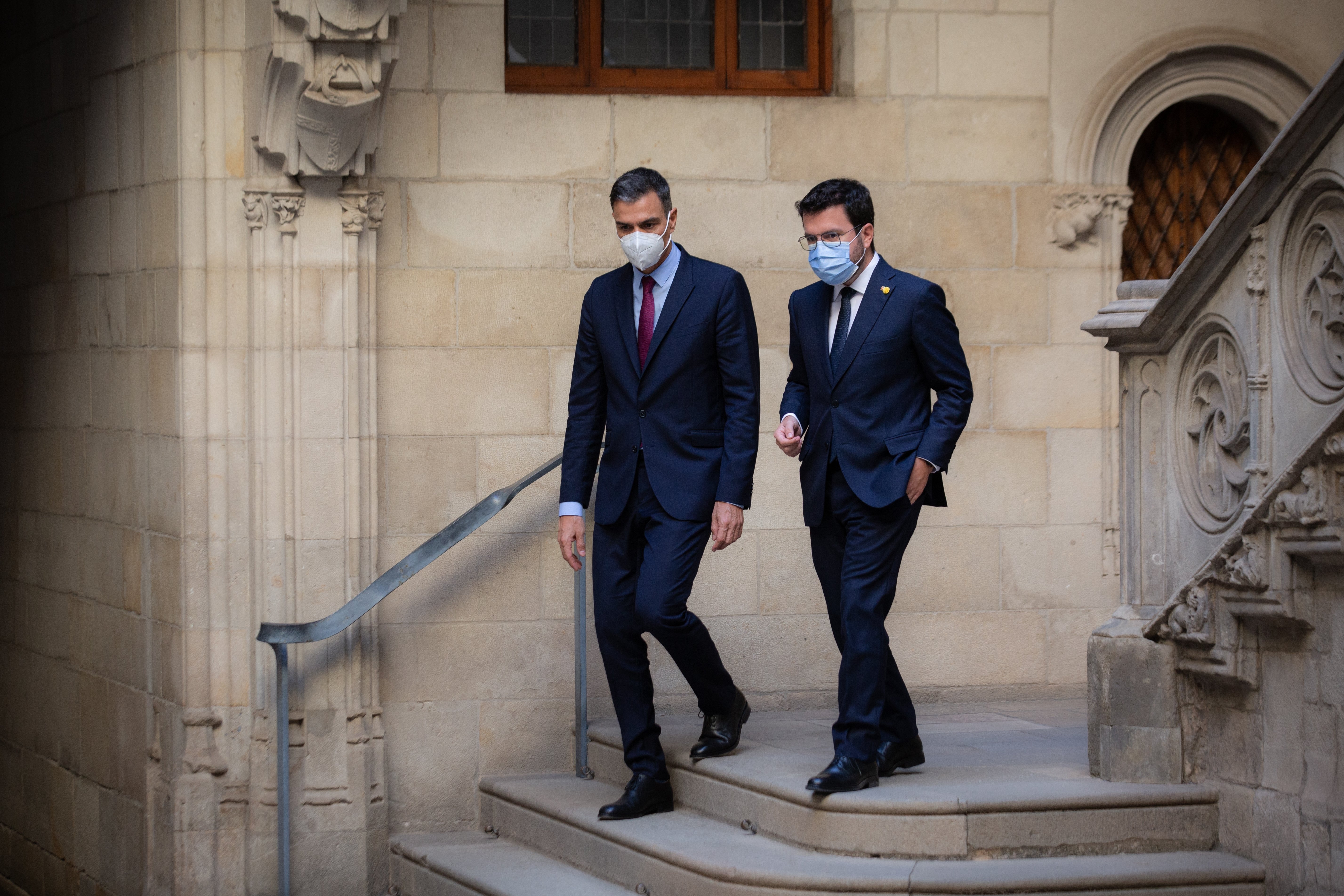If the dialogue table ever existed, its pulse is now flatlining. Spain's Socialists have openly declared that they are not setting a date for dialogue with the Catalan government over the political conflict because "the time for confrontation is over". This was stated on Good Friday by the PSOE spokesperson in Congress, Héctor Gómez, in statements to Europa Press. Thus, the table for dialogue between Spain and Catalonia, agreed to in January 2020 as the way forward in Spain's worst constitutional crisis in the post-Franco era, continues without a date or a plan for real negotiation. It had an initial meeting in February 2020, and then a "restart" meeting in September last year, but the promises to begin a genuine, on-going process have simply been ignored. In fact, the Socialist MP went as far as to assert yesterday that a new era had begun in the conflict with the state, precisely due to to the success of the table: "It is a space to facilitate coexistence and to continue lowering the tension in Catalonia", celebrated Gómez. The PSOE spokesperson also took the opportunity to reaffirm his party's position on linguistic policy in Catalan schools, and emphasized the imposition of the 25% Spanish language quote in classrooms: "Court sentences are to be complied with," he said, 27 months and many legal cases after the Socialists agreed that "overcoming the judicialization of the conflict" was one of the goals in the process of "dialogue, negotiation and agreement".
Too busy now, maybe later
In the interview, Gómez defended the dialogue table with the Catalan government as a tool "to move forward and seek solutions." Asked when the two sides would meet again, given the insistence of Catalonia's ERC, Gómez said that this "depends a lot on the agenda of the Spanish executive." Certainly, he explained, "there have been many things" in recent months that have kept the government of Pedro Sánchez busy or that have simply been a priority, such as the crisis in the Sahara, the war in Ukraine, the elections in Castilla y León, the truck drivers' strike and the energy crisis. "There is no specific date, but there is a will to set one and continue working to strengthen this space of understanding," Gomez insisted.
Dialogue with limits
On the other hand, although the Socialist MP reaffirmed that the dialogue table will meet again, and that the Spanish executive "will continue to dialogue with ERC", he placed a new limitation on this negotiation with Catalan president Pere Aragonès: excluding the question of language policy in Catalan schools. Asked whether there would be negotiation with the Catalan government on a policy to protect language immersion after the court ruling for a 25% Spanish quota, Gómez insisted that the path of dialogue is always open "to move forward and seek solutions", but that despite everything "sentences are to be complied with" and that the Spanish government "moves with the utmost respect for court sentences". "This is unquestionable," he said.
In the 2020 accord to set up the dialogue table, both parties agreed to "open dialogue on all the proposals presented" with "freedom over the content", and the Catalan government's proposals have been the same thoughout: an agreed referendum on Catalonia's political future, with independence as an option, as well as an amnesty on independence process legal cases. However, the PSOE made it clear after the agreement was signed that it was only willing to discuss proposals within the boundaries of the Spanish Constitution as it currently stands, effectively vetoing the basic Catalan demands from any discussion.
Appetite for civil disobedience
Last week, a survey on polarization in Spanish society showed that the largest plurality of Catalans (45%) believe that dialogue without any pre-imposed constitutional limits is the best way to solve the political conflict over Catalonia's future. Meanwhile, another simultaneous survey, carried out by the GESOP research company for the Catalonia Global Institute, has calculated that about one third of all Catalans - numerically, well over two million people - would be willing to take part in a campaign of peaceful civil disobedience in order to move towards independence. In fact, on October 1st, 2017, over two million Catalans voted in the referendum on independence from Spain, which, having been declared illegal by the Spanish government, was itself an act of civil disobedience for those who took part in it.

